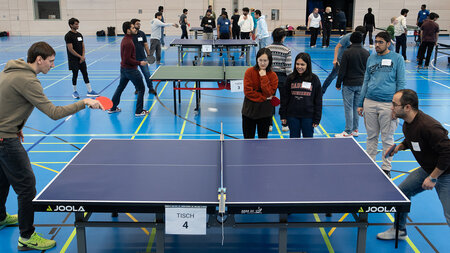Keynotes
What Drives Protest - and What Makes It Effective?
Prof. Dr. Martijn van Zomeren
18.08.2025, 17 Uhr, @Ideenreich/Universitätsbibliothek
In this talk, I will outline a new relational-psychological theory of social protest that is based on a motivational and a strategic pillar. The motivational pillar offers an integrated portrait of the protester on the basis of empirically supported core motivations for social protest (i.e, social embeddedness, identity, morality, anger and efficacy). The strategic pillar is based on emerging insights from recent research on effectiveness of social protest and on the theory's assumptions about the protester as a socially embedded actor. I will first outline what I think we know and don't know about motivations for (e.g., Agostini & Van Zomeren, 2021) and effectiveness of social protest (e.g., Shuman et al., 2023), and then apply the new theory's relational-psychological perspective to the case of climate protests, raising and also partially answering questions about how to motivate people to mobilize for this cause, and what kind of protests may be most effective in this case. I close with outlining directions for future research on social protest relevant to social, political and environmental psychology.
Nerds in the Ivory Tower: How Stereotypes Challenge Trust in and Within Science
Jun.-Prof. Dr. Marlene Altenmüller
19.08.2025, 13 Uhr, C.25.014
Scientists are often seen as highly intelligent geniuses who are only focused on their complex and solitary work; they are assumed to be socially reserved and awkward, sometimes even immoral. In the words of social psychological models of person perception: scientists are stereotyped as highly competent, yet only moderately warm. Trust in science, however, needs both: competence-related (i.e., expertise) as well as warmth-related (i.e., benevolence) perceptions. In my talk, I will present insights into how such stereotypes challenge not only public trust in science but also trust among researchers. I will critically discuss recent evidence on how we might be able to bridge these stereotypes to promote more trustworthy and collaborative science.
Self-Group Distancing as an Obstacle to Gender Diversity in Masculine Workplaces
Asst. Prof. Dr. Jenny Veldman
19.08.2025, 17:30 Uhr, C.25.014
In recent years, it has become clear that to address barriers to gender diversity in the workplace it is crucial to focus on the organizational environment—particularly the presence of an often-hidden but powerful foundation of masculine values, practices, and interaction styles. These masculinity norms are common in many organizations, especially those that are male dominated. The research presented in this talk examines how women navigate these masculine workplaces by creating a distance between the self and the devalued gender ingroup (i.e., self-group distancing). A daily experience sampling study among women in military training showed that women distanced themselves from other women in response to day-to-day personal experiences with gender identity threat and low institutional belonging, but with costs for well-being. Next, several studies demonstrate the influence of strong masculinity norms in the workplace on self-group distancing. An experiment showed that women (not men) were more likely to distance themselves from their gender ingroup in a virtual workplace in STEM characterized by strong (vs. weak) masculinity norms, both on self-report and behavioral measures. A correlational field study showed among a sample of men and women employed in a range of different industries that strong masculinity norms in their workplace were related to self-group distancing for women and not men. Further experiments showed the role of status as the underlying mechanism, demonstrating that women’s (more than men’s) sense of status is rooted in their ingroup’s status in masculine workplace cultures, and that elevating the status of the female social identity reduced the gender gap in self-group distancing via an increase in women’s sense of status. Together, these studies illuminate how women use self-group distancing as an identity management strategy to navigate workplaces with strong masculinity norms, and how this forms an obstacle to gender diversity.
Psychological Consequences of Framing Inequality as Privilege Versus Disadvantage
Prof. Dr. Susanne Bruckmüller
21.08.2025, 10 Uhr, C.25.014
Inequality between social groups is a key topic of social psychology and one of the most pressing issues of our time. It usually encompasses (at least) one group that is better off and (at least) one other group that is worse off. Accordingly, communication about, as well as research on, inequality can focus on disadvantages (e.g., the poor having less) and disadvantaging mechanisms such as discrimination, or on advantages/privileges (e.g., the rich having more) and advantaging mechanisms such as favoritism, though public discourse and scientific work pay much more attention to disadvantages and discrimination than to advantages and privilege. This raises the question whether these framings affect how people perceive and respond to inequality. I will present some examples from own work as well as a systematic review illustrating that advantage versus disadvantage framing does have effects, but that the respective research is too fragmented, inconsistent, and lacking of theoretical integration to draw firm conclusions (yet). I will suggest a unifying framework that can integrate different theoretical approaches and will end with a discussion of implications for (psychological) research on framing and on inequality more generally.





